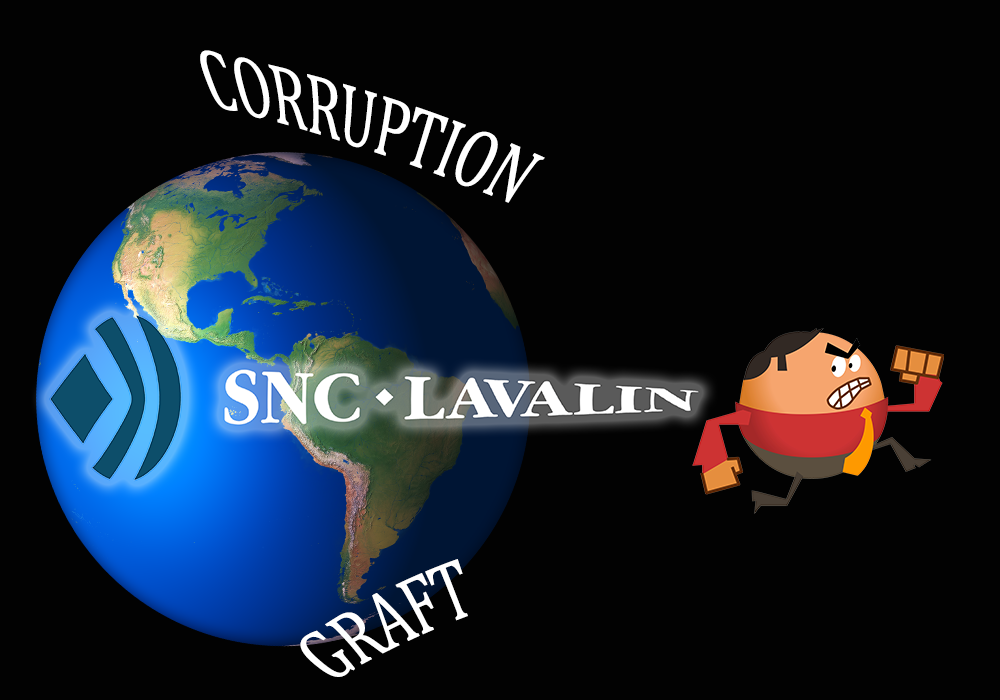Federal politics are transfixed by apparent managerial indiscretion yet again. Admitted corruption by SNC Lavalin executives and other employees no longer at the firm, have become the genesis of a political scandal in Ottawa. The company faces criminal prosecution for those infractions, with consequences that could cripple the company if it is found guilty or pleads guilty, as it would face a ban on federal contracts for years, which cities and provinces might observe, as well. The firm is already shut out of World Bank tenders due to a graft-tainted bridge contract it completed in Bangladesh.
Construction has been an ethical quagmire in North America for generations; bid-rigging and kickbacks are a risk with every project set out to tender; the larger and more government-involved the likelier there is to be temptations on one side or the other. Since cost overruns are quite common in the public sector, and some private sector projects, there is scope and opportunity to hide illicit payments.
Graft still happens in our supposedly law-abiding modern and transparent country: the new super-hospital in Montreal was one of SNC’s projects, where millions of dollars in payments went to a person who was involved in deciding the winning bid. Hence, it should come as no surprise that in countries where the rule of law is weak, greedy officials are brazen, and there is little or no transparency, many similar contracts, and much more, are riven with corruption.
Transparency International has an index which ranks nations as to their degree of corruption. It is a good, if inexact guide to how likely it is that a company doing business in a particular nation will have to work hard to keep rigorous ethical standards in the face of predatory officials, high and low. The World Bank does something similar with its Ease of Doing Business rankings, although corruption is not the highest-priority factor in the calculations.
So, there are ways that companies can be forearmed before venturing into these hazardous realms. Some of the riskier countries are relatively modern and advanced, such as South Africa, Turkey and Mexico. Sometimes relatively poor ones are comparatively honest, such as Bhutan and Botswana. However, in general, the richer the nation, and the more democratic it is, the less likely it is to have endemic or severe corruption.
The companies that have to have a physical presence, as opposed to just trade or finance, are the ones that may fall victim to graft-seekers, or themselves seek to take advantage of vulnerable local officials. So, mining, oil and gas, construction and engineering firms are the ones that tend to get into trouble.
These adventurous companies are usually aware of these risks, as are astute investors in them. It may not be entirely possible to invest or operate in these ethically challenged countries and regions without giving out some money in what may not be true work for cash, but really is either ‘pay to play’ or ‘pay to avoid having something unfortunate happen to you’. If the payments become too large, too obvious, too unjustifiable, or too frequent or eternal, then the investment returns to the company plummet and the reputational and legal risks escalate. It can be hard to navigate these dangerous rocks and shoals.
It was not inevitable that SNC would succumb to the temptation of graft, or even that it would be caught eventually, but the larger and more extensive and frequent such schemes are, the risks of them being found out and be prosecuted risk dramatically. There will be more such scandals; there have been lots of them in the past.
If Canada, as seen in the Montreal super-hospital case, is not immune, then it is unlikely that any endeavour in just about any place around the world does not have some high probability of ethical taint about it. It remains a question whether massive opprobrium and employment-destroying legal penalties should be applied when few employees or shareholders were in a position to know what malfeasance may be occurring, or be able to do anything about it if they did.
The world is not a clean, transparent, honest theme park with friendly, virtuous characters spreading progress and prosperity as they wind their way through dysfunctional, dubious and murky political and institutional environments. Efforts to bring light and justice to dark corners of the government-commercial nexus are welcome, but there should be no illusions that company managers do not face a minefield when they go abroad, or even deal with governments at home.



